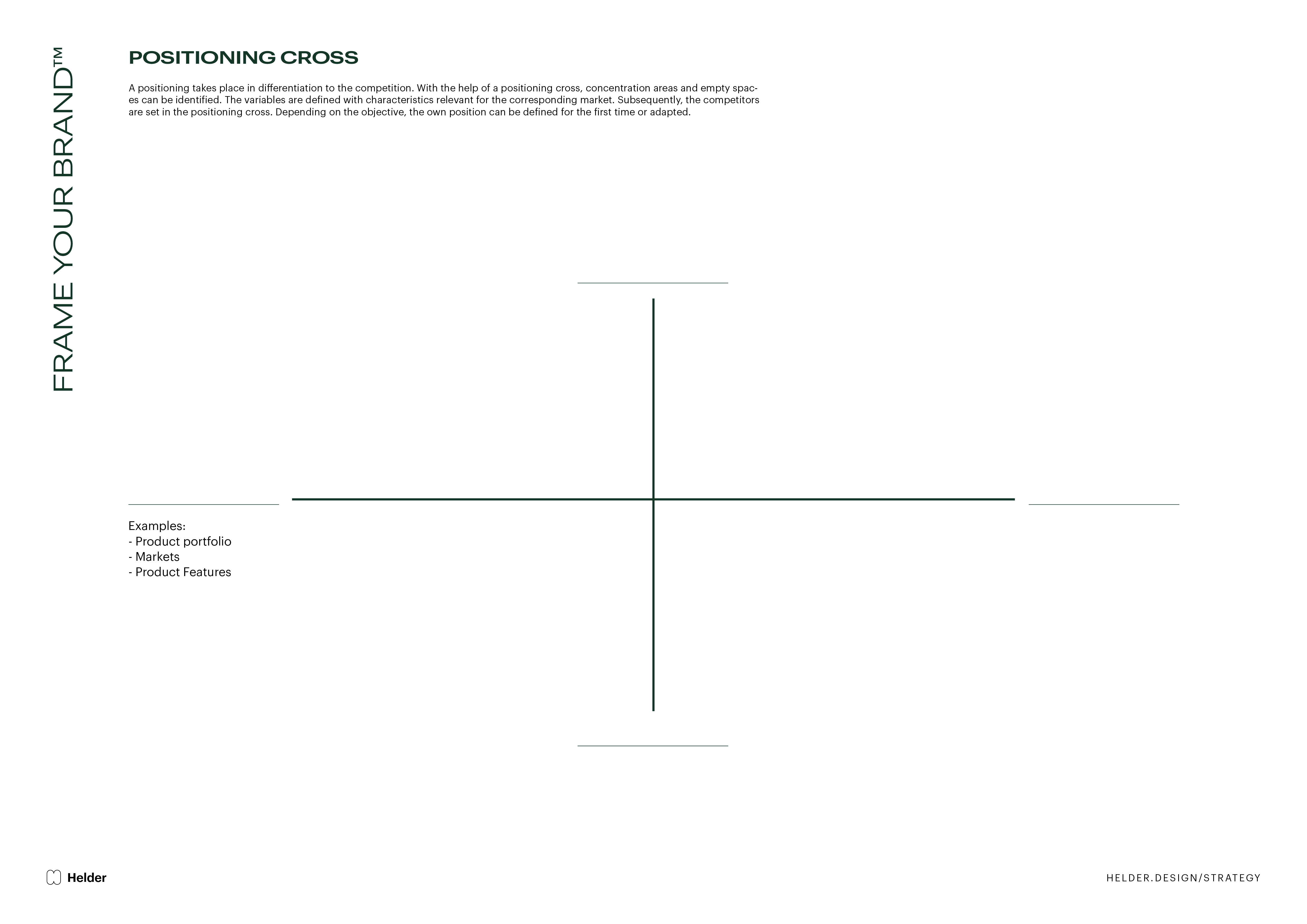Skillfully aligning a brand
Brand positioning is the discussion and occupation of a defined position in the relevant market in order to achieve an attractive and unique place with the target groups. This requires clearly defined positioning goals and a corresponding strategic orientation. Which characteristics or variables offer the potential to stand out from the competition and occupy an independent position? This can be, for example, the price, the sustainability factor, the demand for design, ingredients or other specific characteristics.
The potential of uniqueness
Brand positioning takes place in distinction to the competition. With the help of a positioning cross, agglomerations and empty spaces can be identified. The variables are defined with characteristics relevant for the brand and relevant for the market. Subsequently, the competitors:inside are set in the positioning cross. Depending on the objective, the own position can be defined for the first time or adapted.
Focusing through brand positioning
The goal is to align one’s brand strategy in such a way that the brand is known and appreciated for certain characteristics. This means discussing what the target group needs, differentiating oneself by solving one of these needs, and thus focusing on the essentials. As a consequence, one ideally positions oneself in a promising niche and does not have to fight with the top dog for potential customers.
More Brand Strategy Templates
-
Summarize your brand identity at a glance: With our Brand Frame® template
-
The SWOT analysis is a proven strategic method that helps companies to identify their strengths, weaknesses, opportunities and threats.
-
A mission statement formulates the added value of a brand’s services and is an essential part of the brand identity.
-
Define for whom and for which needs the brand offers solutions
-
Define a specific goal that the brand wants to achieve within a defined period of time.
-
Align the social added value, the needs of the target group and your own goals.
-
In order to develop a successful brand strategy, it is important for companies to analyze their target groups in detail. The creation of buyer personas helps to create a better understanding of the target group.
-
Clarify the Why, How, and What of your brand to form the strategic foundation.
-
Define the brand identity on 3 different levels with the identity prism template.
-
The brand steering wheel according to Esch is suitable for a systemic analysis of the brand.
-
Develop brand values with examples and exercises and define what the brand stands for
-
The Unilever Brand Key is a brand strategy model, focuses on competitors and target groups.
-
The Bates Brand Wheel captures a brand’s essence in 5 steps, analyzing attributes, benefits, values, and personality to communicate the core identity.
-
Define the brand personality: with the Brand Personality Sliders template.
Do you need help defining your brand strategy?
We are happy to consult you.
 Book Call
Book Call

